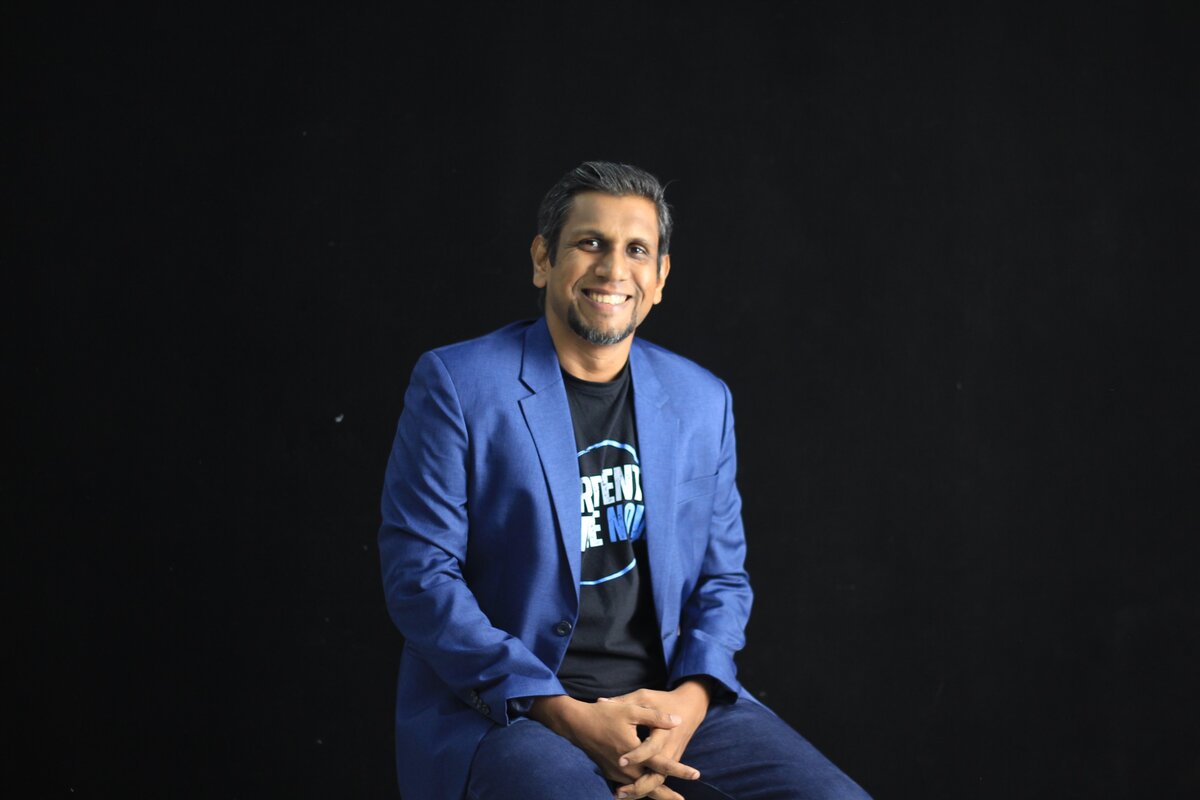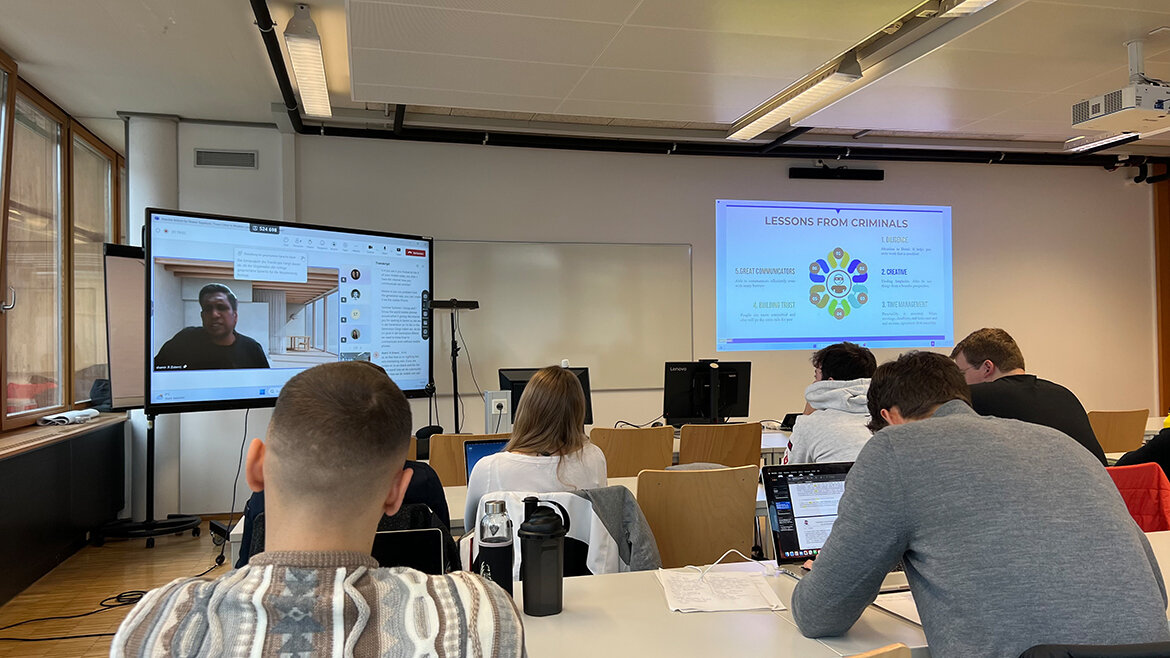Six lessons managers can learn from criminals
- 20.05.2025
- News Study Program

Dr. Shamir Rajadurai draws his insights from intensive conversations with criminals.
Attention to detail, trust, resilience: what distinguishes successful criminals can also help managers get ahead. Students at the University of Applied Sciences Kufstein Tirol discovered six surprising success factors in an extraordinary lecture.
In the winter semester of 2024/25, students of the Business Management degree program (now: Leadership & Business Management) at the FH Kufstein Tirol gained an unusual but all the more impressive insight into the world of management – through the perspective of a criminologist. Renowned crime prevention expert Dr. Shamir Rajadurai from Malaysia gave an online lecture in December 2024 entitled From Crime to Wisdom: Lessons for Life & Management.
A CHANGE OF PERSPECTIVE THAT INSPIRES
The lecture was organized by lecturer Katie Tropper as part of the Corporate Communications course. For her, it was clear that the way people on the fringes of legality think and work can provide fascinating insights into legitimate strategies in business life—especially when it comes to topics such as planning, trust, communication, and mental strength. Tropper met Dr. Rajadurai in May 2024 at a conference on ethical business in Lisbon and was able to recruit him for her course.

Dr. Shamir Rajadurai shared his knowledge and exciting approaches via MS-Teams.
“The students were really excited about the importance of the principles presented. If this is possible in Business Crime, why not in legal business too?” commented Tropper with a wink.
SIX SUCCESS FACTORS WITH UNORTHODOX ORIGINS
Dr. Rajadurai draws his insights from intensive discussions with criminals, including high-profile individuals who were involved in complex criminal networks. His goal is not to glorify crime, but to learn from its efficiency and strategy. He highlights six factors in particular:
- Attention to detail: Criminal acts rarely fail because of the big idea—they fail because of poorly thought-out details. For example, if a fake ID isn't perfect, everything will be exposed. The same meticulousness is required in business: projects succeed when they are thought through consistently, down to the smallest detail.
- Creativity and a change of perspective: Successful criminals think outside the box—they recognize market and system gaps that remain hidden to others. Rajadurai recommends zooming out more often in a business context as well, in order to see the bigger picture. Where are there still gaps? What unconventional approaches could work?
- Time management and patience: Criminal operations follow precise timing—the getaway car doesn't arrive late, and the heist is carried out with pinpoint accuracy. At the same time, hackers, for example, have extreme patience: They observe for months before striking. In business, too, it's important to strike a balance between punctuality and choosing the right moment to make decisions.
- Trust and belonging: There is a strong bond of trust within criminal groups. Entrance exams and rituals create a sense of belonging. Rajadurai draws a comparison with the corporate context: belonging begins on the first day of work. Only those who feel part of a community act with full motivation and responsibility.
- Effective communication: There can be no misunderstandings in illegal networks. Communication must be clear, complete, and independent of language. Rajadurai explains how international gangs communicate efficiently nonverbally and across cultural barriers—a success factor that is just as essential in international companies.
- Mental strength: While people in the legal world often complain about stress, perseverance is a basic requirement in the criminal world. A thief who fails to show up for a burglary because of stress is not likely to survive. In Rajadurai's view, people need to take more personal responsibility and be more resilient in their everyday lives.
BETWEEN HUMANITY AND PRAGMATISM
Despite his proximity to criminal circles, Rajadurai always emphasizes his ethical stance. He does not see himself as a criminal, but rather as a researcher with a deep interest in human behavior. He is particularly concerned with the question of the value of human life—and how this can be conveyed to young people without resorting to moralizing approaches.
An example: Instead of saying, “You must not kill anyone, otherwise you will go to prison,” one should explain why human life is valuable. “This is the only way to develop a deeper ethical understanding,” says Rajadurai.
The role of urban planning in crime prevention was also briefly touched upon: architecture that creates dark alleys or blind spots encourages crime. Rajadurai is working with architects to make urban spaces safer—an area in which interdisciplinary research also has potential.
GLOBAL INPUT FOR LOCAL EDUCATION
For the FH Kufstein Tirol, this example shows how international expertise and practical relevance can be profitably intertwined. The integration of such formats not only adds value for students, but also demonstrates the higher education institution's openness to incorporating new and unusual perspectives into the discourse.
Dr. Shamir Rajadurai's presentation not only provided food for thought, but also served as an impressive example of how seemingly disparate worlds—crime and management—can be meaningfully connected if one listens carefully and is willing to learn.
Links:
- Leadership & Business Management | ft
- Shamir Rajadurai | LinkedIn
- Katie Tropper | LinkedIn
